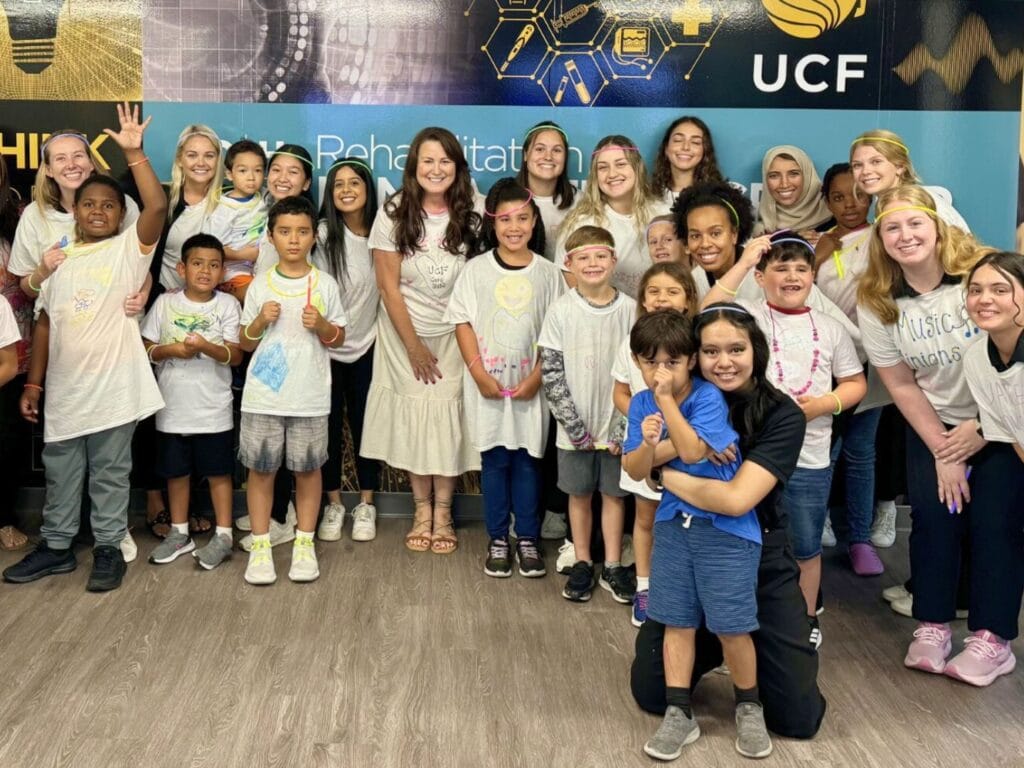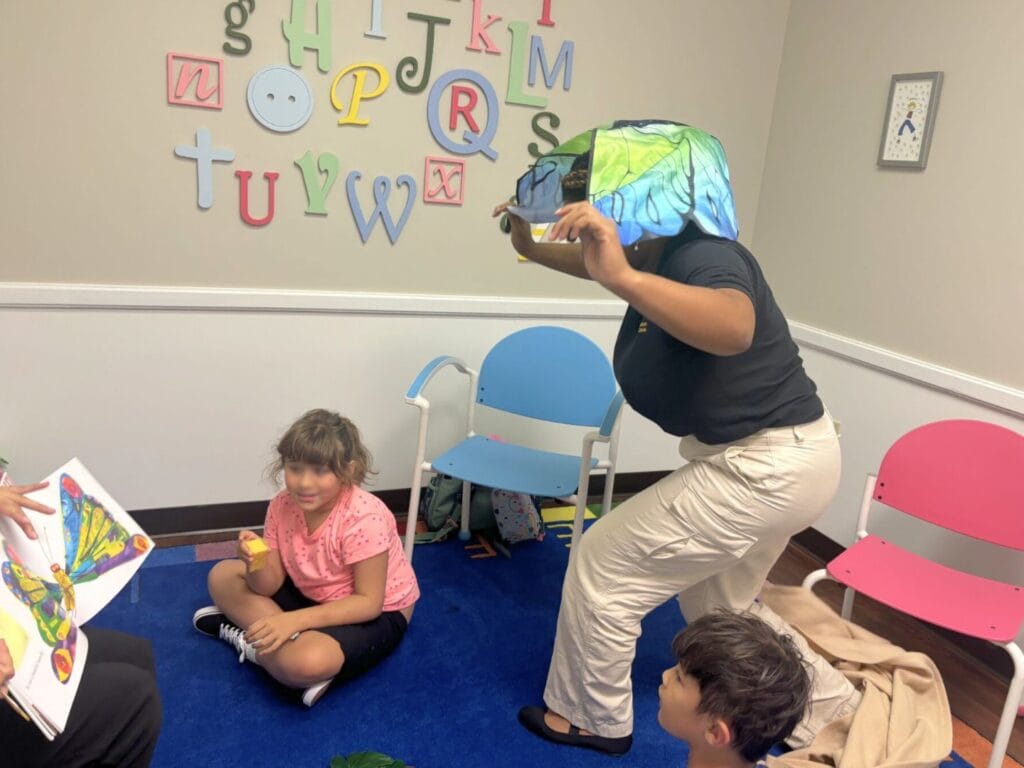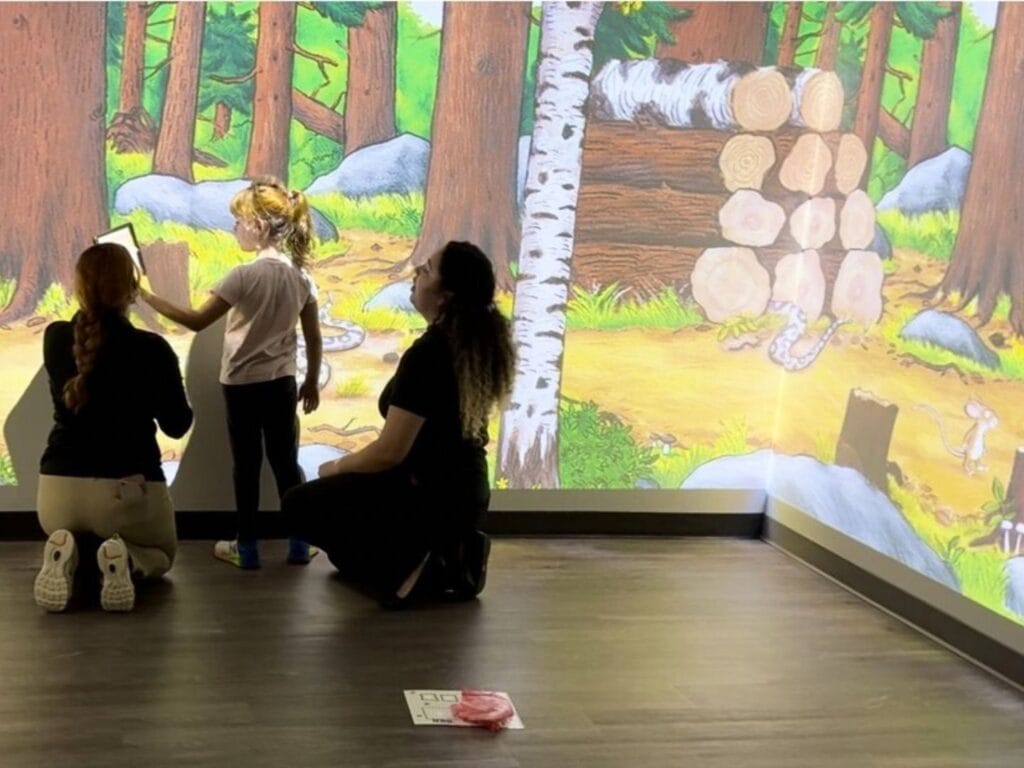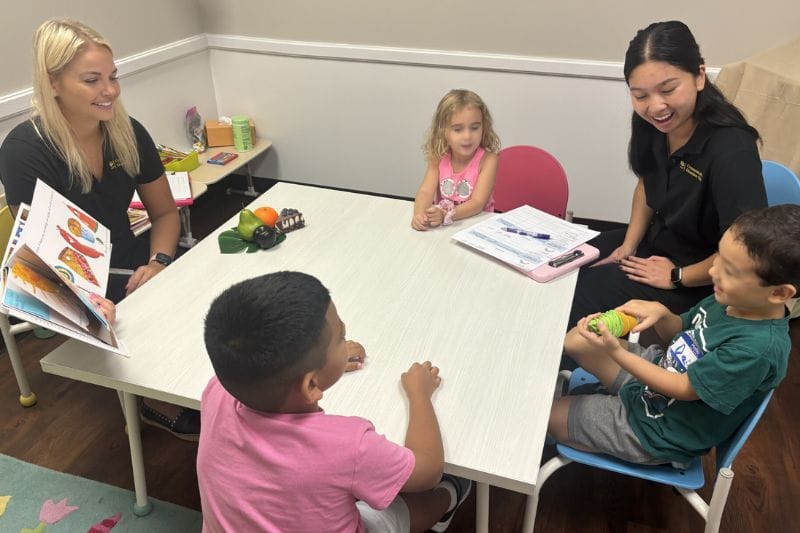More Than Words: How Literacy Builds Confidence and Tools Against Bullying
When we think of literacy, most of us picture the moment a child sounds out their first book or proudly brings home a spelling test. But, according to Carrie Loughran, M.A., CCC-SLP, a UCF Health Communication Disorders Clinic and Director of the university’s iREAD programs, literacy is about so much more.
“Literacy is the foundation for communication,” Carrie explains. “Yes, it’s about reading, but it’s also about writing and expressing ideas verbally. These skills open doors not only academically, but socially. When children can share their thoughts and understand others, it builds confidence—and that confidence can be protective against bullying.”
UCF’s iRead Programs
At UCF’s Communication Disorders Clinic, Carrie and her team run a series of programs that nurture these abilities in children with a variety of needs. The iREAD initiative includes intensive reading support for struggling students, summer programs for young children with learning differences, and even immersive “story adventures” where kids can step inside a life-sized book to build vocabulary and comprehension.

What makes these programs special is their multisensory approach—children don’t just sit and decode words. They move, speak, listen, write, and connect meaning in ways that feel natural and engaging. The goal is to help kids master not just mechanics, but the confidence to use their voices.
Having a learning difference often makes a child more susceptible to bullying and harassment. Besides the external influences of other children, there can be internal self-doubt and negative self-talk that can contribute to a variety of emotional difficulties.
“When children struggle with reading, they frequently feel inferior to their classmates, which can erode their confidence in social situations and in their overall academic abilities. Strong literacy skills allow kids to advocate for themselves,” Carrie notes.
“If a child develops an increase in confidence in their abilities, they can tell their story, explain what they need, or even just join a conversation on the playground, which helps them feel included. That sense of belonging can make a huge difference in preventing bullying.”
Parents who enroll their children in iREAD programs often see gains beyond the classroom: better social interactions, increased self-esteem, and even joy in picking up a book for fun.

Carrie says that’s the heart of her mission.
“Literacy is empowerment. It’s how children discover who they are and how they fit in the world.”
This Literacy Month and Anti-Bullying Month, it’s a reminder to all of us: helping children read also helps them speak up, stand tall, and connect with others. And that’s a story worth sharing.
Quick Guide to UCF’s iREAD Programs
Where: UCF Communication Disorders Clinic
Director: Carrie Loughran, M.A., CCC-SLP
Early iREAD
- Who it’s for: Children with autism or developmental disabilities
- Focus: Foundational literacy through movement, play, and multisensory learning
- When: Multi-month sessions during the school year
Camp iREAD
- Who it’s for: Preschool–2nd graders with autism spectrum disorder (ASD)
- Focus: Emergent literacy—letters, sounds, phonological awareness, and comprehension
- When: Two-week summer camp
iREAD (Intensive Reading)
- Who it’s for: 1st–12th graders who struggle with reading
- Focus: Phonics, fluency, comprehension, spelling, and writing skills
- When: Summer mornings plus fall and spring evening sessions
Reading Adventures
- Who it’s for: Children with autism, ages 5–8, who are non-readers
- Focus: Immersive story experiences in UCF’s BLISS suite—vocabulary, story recall, and communication confidence
- When: Spring sessions, free of charge thanks to grant funding
Learn more or register: healthprofessions.ucf.edu/cdclinic

Did You Know?
- September is National Literacy Month: Reading, writing, and speaking skills build confidence. Literacy helps kids find their voice, and share it proudly.
- October is National Bullying Prevention Month: Schools and families focus on kindness and inclusion. On Unity Day, everyone wears orange to stand against bullying.
- Kids who can read, write, and express themselves are more likely to speak up, stand tall, and build positive friendships.
At-Home Literacy Boosters
- Read together daily – even 10 minutes counts.
- Encourage journaling – let kids write about their day or dreams.
- Play word games – rhyming, “I Spy” with letters, or Scrabble Jr.
- Story swap – take turns telling silly or true stories at dinner.
Confidence Builders
- Celebrate effort, not just outcomes.
- Role-play how to handle unkind words.
- Encourage eye contact and clear speaking.
- Model kindness—kids copy what they see.


